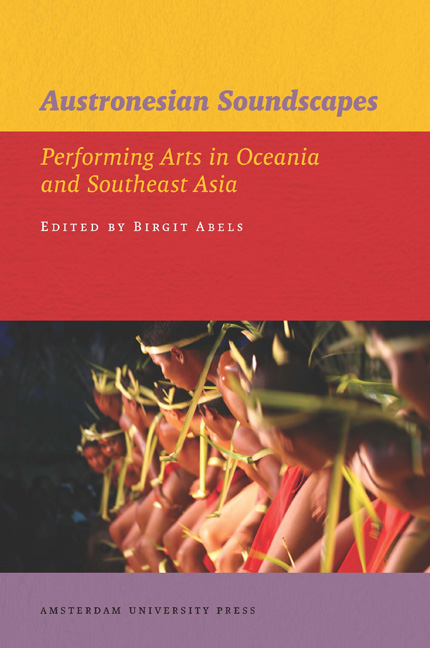1 - Creating Places through the Soundscape: A Kalinga Peace Pact Celebration
Published online by Cambridge University Press: 20 January 2021
Summary
Introduction
Warfare and revenge killings define much of life for the Kalinga of the northern Philippines. Fears of war express themselves in a range of beliefs and values that include appropriate hospitality for visitors, taboos regarding travel and regulations about spirit-world interactions. Even activities as seemingly mundane as planting a rice field and walking on certain trails are affected by tensions between Kalinga sub-groups. The Kalinga are somewhat notorious for violence, and other Filipinos often revert to stereotypes of headhunting mountain dwellers when describing them. Some suggest that kalinga is derived from a word for ‘enemy’ in neighbouring ethnolinguistic groups (Billiet 1970: 26). The Kalinga certainly recognise their own reputation as warriors and former headhunters, especially when outsiders’ fears prevent development opportunities and other initiatives from reaching their region.
Each Kalinga sub-group is linked to every other sub-group through a series of bilateral peace treaties called bodong. These bodong agreements mediate interactions between members of the sub-groups and provide the basis for a traditional system of law and order. The prescribed regulations of a formal peace pact are intended to minimise the potential for conflicts, which may even include guidelines regarding the selling of property to outsiders and the acceptable treatment of women. Almost any violation of the peace pact terms can be seen as an excuse to avenge an outstanding grievance, so even minor disputes can quickly lead to outbreaks of open hostilities. A subsequent act of retaliation can result in a broken agreement, an outcome that no one wants but which few are able to stop. A broken peace pact can quickly escalate into a cycle of retaliatory attacks on members of the opposing sub-group, even threatening to harm individuals who have migrated to distant towns and cities. In the case of such an outbreak, members of the warring sub-groups have an incentive to re-establish a broken peace pact agreement, with some families contributing up to several hundred thousand Philippine Pesos to settle a dispute. In order to stop the violence and prevent further attacks, representative members of each sub-group will try to negotiate a new agreement. If they are successful, two of the negotiators will become the new peace pact holders for their respective sub-groups.
- Type
- Chapter
- Information
- Austronesian SoundscapesPerforming Arts in Oceania and Southeast Asia, pp. 25 - 44Publisher: Amsterdam University PressPrint publication year: 2012



